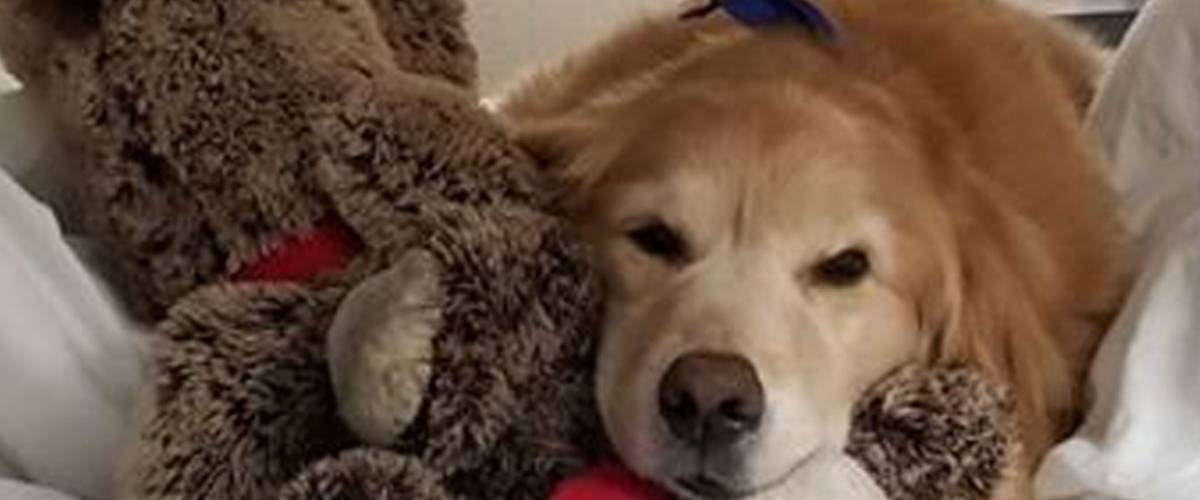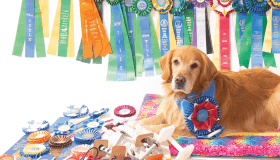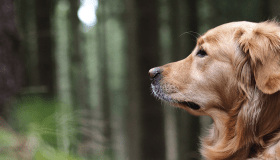
July 22, 2019 – Kathy Carter had a bad feeling in June 2017 when her beloved golden retriever, Ladd, seemed off. “I couldn’t put my finger on it, but I knew something was wrong; Ladd just wasn’t right.”
Over the years, Ladd had two brushes with cancer. The tumors were skin masses Kathy found early and Ladd was cured with surgery. In May 2017, Ladd also had a benign eye tumor removed.
This time, however, there wasn’t a new mass – just a growing sense of dread. Tests confirmed Kathy’s suspicion; Ladd’s white blood cell count was abnormal. Further testing led to a diagnosis of T-zone lymphoma.
Lymphocytes are white blood cells that form a critical part of the immune system. However, when they start to divide uncontrollably, they can affect many organs of the body and can be found in the blood stream. Lymphoma, this cancer of the lymphocytes, is one of the most common types of cancer affecting dogs.
It also is a cancer that Morris Animal Foundation is studying through several on-going research projects as well as the Golden Retriever Lifetime Study. Now, during our National Dog Day campaign, you can support the Golden Retriever Lifetime Study with a gift to the Foundation. Your gifts, and those of others, will help scientists understand more about all cancers in dogs, including T-zone lymphoma.
T-zone lymphoma is a slowly progressive form of lymphoma that generally develops in older dogs. It comprises about 12% of all canine lymphoma cases. T-zone lymphoma is far more prevalent in golden retrievers than any other breed, accounting for one-third of all dogs diagnosed with the disease.
We’re still learning about T-zone lymphoma, but the good news is that many oncologists feel that aggressive chemotherapy isn’t necessary for this type of lymphoma and many dogs live for years after the diagnosis.
Ladd was started on chemotherapy but didn’t do well. He and Kathy were on a rollercoaster ride of lymphocyte counts, good days and bad days. Ladd then went to Colorado State University’s prestigious Flint Animal Cancer Center for treatment. Kathy said she got a great education from the veterinarians on Ladd’s cancer and what to try moving forward. Ladd returned home and had a splenectomy in November 2017 and he’s been doing great ever since.
Kathy is grateful to have Ladd with her and encourages anyone whose dog has been diagnosed with cancer to learn all they can and don’t be afraid to ask questions. “You’ve got to be your dog’s voice and advocate,” said Kathy.
Learn more about the Morris Animal Foundation Golden Retriever Lifetime Study.




